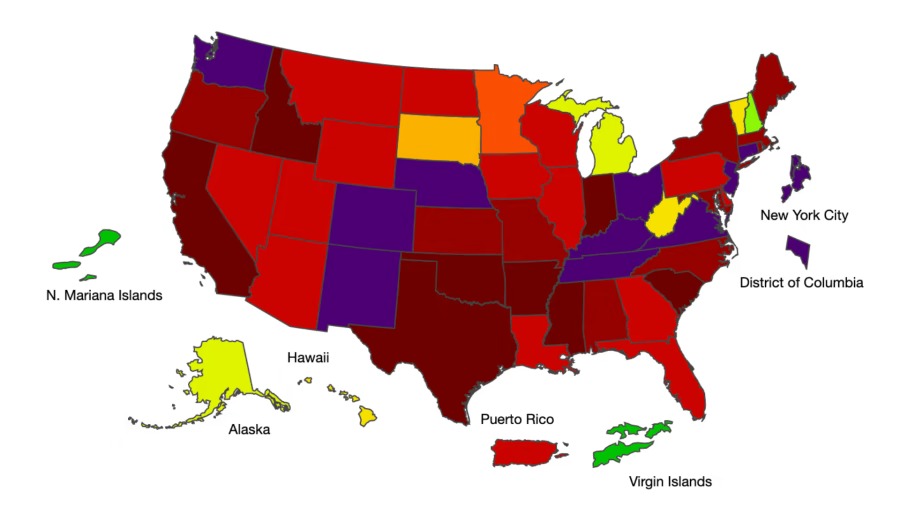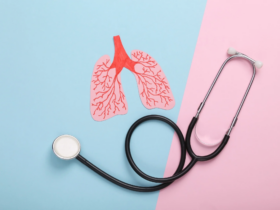United States: Michigan has seen a surge in hospital visits due to respiratory illnesses, categorizing it as “high” or even “very high,” in recent weeks according to report by the Centers for Disease Control and Prevention.
The predominant reason behind these respiratory illnesses at McLaren Oakland Hospital in Pontiac, as stated by spokesperson Dave Jones, has been the influenza virus.
According to the Michigan Department of Health and Human Services, the traditional flu season spans from October to the latter part of April or early May, according to theoaklandpress.com.
“Though the prevalence of the flu seems to be on a downward trajectory, Michigan is still grappling with considerable activity. Presently, influenza is manifesting in a far greater extent than COVID-19 and RSV,” elucidated Chelsea Wuth, a representative from MDHHS, via email correspondence.
Within the preceding fortnight, over 360 individuals seeking medical attention at Corewell Health establishments across southeast Michigan tested positive for influenza. Approximately 20% of these patients, totaling 75 individuals, necessitated admission, albeit the precise cause of admission remains undetermined, whether attributable to the flu or other underlying conditions.
Cornwell, previously known as Beaumont, oversees operations in numerous locales, including Royal Oak, Troy, Farmington Hills, Dearborn, Taylor, Trenton, Grosse Pointe, and Wayne. Additionally, they maintain outpatient facilities in Lenox Township, Livonia, and Canton.
Henry Ford Health, a healthcare entity with a significant presence in southeast Michigan, reported a surge in flu cases during the months of January and February, though the incidence has now plateaued, as per theoaklandpress.com.
Though it might be quite a bit out of time to consider a flu season, MDHHS keeps on pushing for flu vaccination by showing that it is the only way of avoiding a serious illness or death.
CDC recommends the flu vaccine annually for people older than six months, depending on certain exception cases only. Regardless of the category of the people, this responsibility is very important for individuals who have a high risk of being affected by severe influenza, especially children under five years, those aged 65 years and above, as well as those who present with chronic illnesses.

The recent flu season epidemic has widespread impacts- atleast 30 million cases have been estimated by the CDC whereas 340,000 hospitalizations and 21,000 fatalities are considered according to the continuing flu season.
Unfortunately, the pervasive impact of the disaster is also reflected in the loss of more than 100 minors, among whom was a teenager from Michigan. MDHHS was not explicit about the significance of the information (such as age, vaccination status, and county of residence).
Influenza is known for its viral and contagious nature and has symptoms of cough, rhinorrhea, fever, or often times a body ache. Both gastrointestinal disturbances such as vomit and diarrhea may be caused, especially among children, which is what theoaklandpress.com tells us.
There are recent guidelines from the CDC that require people to isolate themselves from such social events until the condition gets better and the successful treatment of fever is evident, which takes at least twenty-four hours from the time the fever subsides without the fever medication taken.
Looking further ahead, the post-recovery phase has been emphasized by guidelines that encourage people to continue on high hygiene practices for the subsequent five days. These practices include air purification, thorough cleaning, the use of masks, and physical distancing.

MDHHS endorses these preventative measures to mitigate disease transmission:
— Refrain from close proximity to individuals exhibiting illness, and abstain from venturing out when indisposed.
— Employ a tissue to cover one’s mouth and nose while coughing or sneezing.
— Engage in frequent handwashing with soap and water, adhering to a minimum duration of 20 seconds. In the absence of soap and water, opt for alcohol-based hand sanitizers.
— Refrain from touching one’s facial features, including eyes, nose, and mouth.
— Embrace additional health-promoting habits, such as prioritizing sleep, diligent surface disinfection, hydration, and consumption of wholesome fare.















